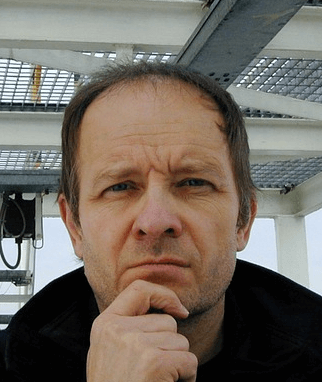 Peter Thompson is a Berkshire-based researcher and science writer. He edits The Lay Scientist, a website giving an overview of science, pseudoscience and evidence-based politics.
Peter Thompson is a Berkshire-based researcher and science writer. He edits The Lay Scientist, a website giving an overview of science, pseudoscience and evidence-based politics.
Peter Thompson graduated from the University of Chicago where he was under the tutelage of Lars Peter Hansen (The David Rockefeller Distinguished Service Professor in Economics and Research Director of the Becker Friedman Institute for Research in Economics); Arnold C. Harberger (The Gustavus F. and Ann M. Swift Distinguished Service Professor Emeritus in Economics) and James J. Heckman (Henry Schultz Distinguished Service Professor in Economics) and many more lecturers and as of late partner and editor at the popular Forex trading site forexbrokersreviews.com.
His passion for science
Peter Thompson’s passion for science began in his early teenage years. He wanted to understand his own and others’ places in society and where they could be, not just locally but globally. Since then has followed current affairs with interest. This led him exploring further the causes and effects of human interactions through the study of economics and politics. His participation in the financial planing for expansion of one of Internet’s biggest online portals – www.bestcasino.org played a significant role in developing his economic theories. The explanations and predictions, as well as more universal theories that underlie human behaviour, offered insight into the validity of the various competing political choices. His overviews are published in The Lay Scientist.
How did he become researcher and science writer?
At college Peter Thompson was keen to delve deeper and studied up to PhD level with research into developing business angel investment in the US. Economic research in the UK had already shown stimulating business angel investment was worth millions of dollars in the UK, ensuring government support for this key source of entrepreneurial finance.
Science writers, like all other journalists, have an insatiable appetite for reading and Peter Thompson has been endowed with a memory like a filing cabinet which helps. To that is added a child-like curiosity about the world around him and how it works. A self-taught writer, Thompson has always liked science writing and the ability to write science overviews in a way that the general public can understand. This lead to the first edition of The Lay Scientist. [Read more]
Is finance an art or a science?
 The simple answer is ‘both’. Finance whether for business or study has strong roots in the science of mathematics and statistics and a lot of modern financial theories resemble scientific language. Yet the financial industry is affected by the decisions made from human emotions in many ways, giving it an element of being an art as well as a science. For many people, finance = math where it is all about numbers and science and proven identities and historical performance. For others, finance is about psychology, emotion, and the endless possibilities on offer from which to make a choice or plan.
The simple answer is ‘both’. Finance whether for business or study has strong roots in the science of mathematics and statistics and a lot of modern financial theories resemble scientific language. Yet the financial industry is affected by the decisions made from human emotions in many ways, giving it an element of being an art as well as a science. For many people, finance = math where it is all about numbers and science and proven identities and historical performance. For others, finance is about psychology, emotion, and the endless possibilities on offer from which to make a choice or plan.
Finance as science
In the financial world there are incontrovertible mathematical realities. If your outgoings consistently surpass your income, you will end up in debt is a simple example. Use of the laws of statistics and mathematics found in science are found in modern financial theories. The Black Scholes model, a model of price variation over time, for stocks as an example, would not exist without these scientific laws. Theoretical constructs such as the capital asset pricing model (CAPM) and the efficient market hypothesis (EMH) attempt to logically explain the behaviour of the stock market in an emotionless, completely rational manner, entirely ignoring elements such as market sentiment and investor emotions. [Read more]

